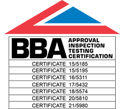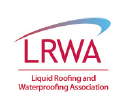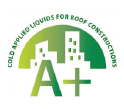Call us on
+44 (0)1268 777871Inverted Roof Solutions from Proteus
Inverted roofs present an innovative approach to construction. Unlike conventional roofs where the waterproofing layer sits above the insulation, inverted roofs reverse this arrangement, placing the waterproofing membrane beneath the insulation layer. This innovative design offers a multitude of benefits that make it a compelling choice for commercial and residential projects alike.
Enhanced Thermal Insulation and Energy Efficiency
Inverted roofs excel in their ability to maintain a consistent temperature within the building envelope. The insulation layer, shielded from the elements, effectively traps heat during colder months, reducing energy consumption and associated costs. This contributes to potentially more sustainable and cost-efficient operation for each property.Inverted Roof Solutions from Proteus
Superior Waterproofing and Protection Against Harsh Weather
By placing the waterproofing membrane beneath the insulation, inverted roofs provide an additional layer of protection against the elements, safeguarding each building from moisture intrusion and potential damage. This robust design can withstand harsh weather conditions, ensuring the integrity of the roof.
Extended Lifespan and Resistance to UV Degradation
Inverted roofs have a notable lifespan, often exceeding 50 years. The insulation layer acts as a protective barrier, shielding the waterproofing membrane from direct sunlight and UV radiation, which can cause premature deterioration. This results in a long-lasting, durable roofing system that requires minimal maintenance.
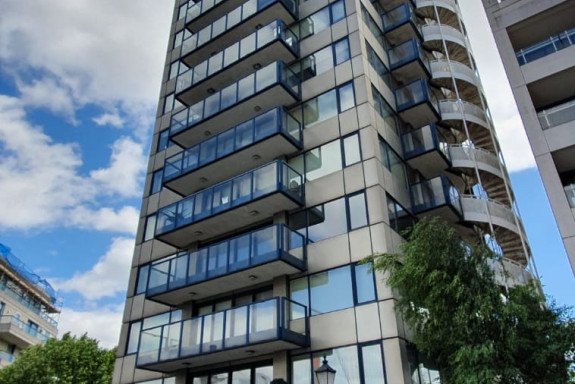
Environmental and Sustainability Friendly
Proteus Waterproofing's flagship system, Proteus Cold Melt®, reflects our commitment to sustainability. This elastomeric, seamless, cold-applied membrane incorporates recycled rubber crumb and other organically grown products, reducing the environmental impact of roofing material production and disposal making it ideal for inverted roofs.
BBA Certified for Exceptional Durability
Proteus Cold Melt® has been rigorously tested and certified by the British Board of Agrément (BBA) to last for the lifetime of the substrate on which it is installed. This certification provides assurance of the membrane's exceptional durability and long-term performance.
Reasons to Consider Proteus Waterproofing for Your Inverted Roof Needs?
When it comes to protecting your property and ensuring long-lasting performance, choosing the right roofing system is a crucial decision. At Proteus Waterproofing, we specialise in delivering exceptional inverted roof solutions that combine innovative technology, unparalleled expertise, and a steadfast commitment to customer satisfaction.
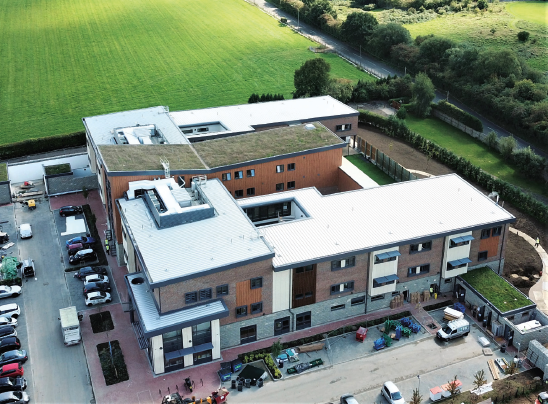
Our team, comprising experienced professionals, has extensive knowledge and expertise in the design, installation, and maintenance of inverted roof systems. We are continuously at the forefront of technological advancements in inverted roofing, ensuring that you receive the most advanced and effective solutions available.
Proteus Waterproofing also has a distinguished history of delivering successful inverted roof projects across a wide range of commercial and residential properties. Our commitment to quality and attention to detail has earned us a reputation for excellence and a loyal customer base who trust us with their roofing needs.
We offer a comprehensive range of inverted roof solutions tailored to meet the specific requirements of your project. We also aim to minimise our environmental impact and promoting sustainable roofing practices. We prioritise the use of eco-friendly materials and techniques, reducing our carbon footprint and safeguarding the environment for future generations.
Customer satisfaction throughout the entire process, from initial consultation to project completion and beyond is our priority. Our team is dedicated to understanding your unique needs and providing personalised attention to ensure your project runs smoothly and exceeds your expectations.
Experience the Proteus difference and discover why we are the preferred choice for inverted roof solutions. Our expertise, commitment to quality, and dedication to customer satisfaction will ensure that your inverted roof project is a resounding success – every time.
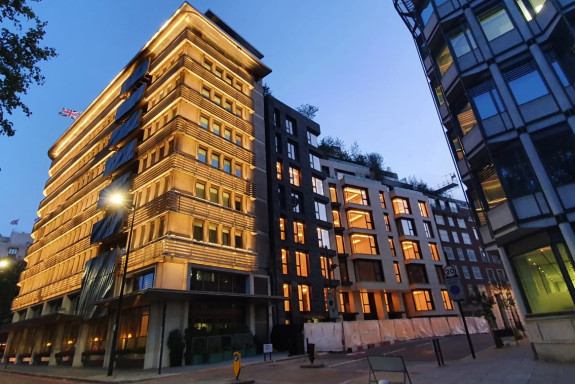
View our Inverted & protected roofs products
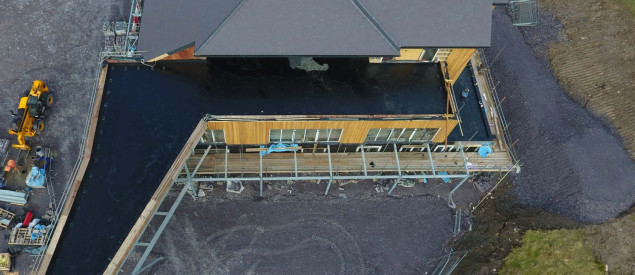
Cold Melt®
Cold Melt® incorporates recycled rubber crumb and other organically grown products to create an elastomeric, seamless, cold applied membrane that can be applied to a wide range of substrates including concrete, asphalt and timber.
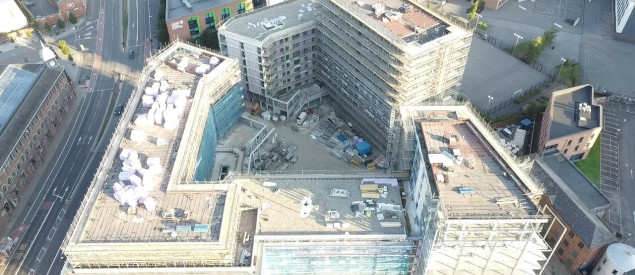
Proteus Hot Melt®
Proteus Hot Melt® delivers fast, economical and reliable waterproofing solutions which are particularly suitable for large flat roof decks.
FAQs
-
Are inverted roofs good for the environment?
Yes, inverted roofs can have positive environmental impacts. They can help to reduce energy consumption, stormwater runoff and air pollution. Inverted roofs can also provide habitat for wildlife and increase biodiversity.
-
Can an inverted roof be installed on my existing building?
Yes, an inverted roof can be installed on most existing buildings. However, it is important to have your roof inspected by a qualified professional to ensure that it can support the weight of an inverted roof.
-
How much maintenance does an inverted roof require?
Inverted roofs typically require low maintenance. The ballast layer should be inspected once or twice a year for any damage or erosion. The insulation layer and waterproofing membrane should also be inspected periodically for any leaks or damage.
-
What are the benefits of inverted roofs?
Inverted roofs offer a number of benefits, such as:
• The waterproofing layer in an inverted roof is protected from the elements, which helps to extend the lifespan of the roof
• Inverted roofs are generally more resilient than traditional roofs because the insulation layer acts as a protective barrier against mechanical damage and foot traffic
• Inverted roofs can help to reduce stormwater runoff by absorbing rainwater into the insulation layer
What are the different types of inverted roofs?
There are two main types of inverted roofs: cold and warm.
• Cold inverted roofs are the most common type of inverted roof. They use a ballast layer, such as gravel or pavers, to hold the insulation layer in place and protect the waterproofing layer
• Warm inverted roofs: Warm inverted roofs are less common than cold inverted roofs. They use a green roof or other lightweight vegetative layer to hold the insulation layer in place and protect the waterproofing layer
-
What are the best materials for an inverted roof?
The best materials for an inverted roof will depend on the specific needs of the project. However, some common materials used in inverted roofs include:
• The waterproofing membrane, which is the most important part of an inverted roof. It’s crucial and should be robust and watertight to effectively protect the insulation layer and the underlying structure
• The insulation layer helps to improve energy efficiency and reduce energy costs. We will advise you as the best type of insulation to use on your next project
• The ballast layer holds the insulation layer in place and protects the waterproofing layer. Gravel and pavers are two common types of ballast used in inverted roofs
• Green roofs can be used on inverted roofs to provide additional benefits, such as improved air quality and reduced stormwater runoff.
-
What is an inverted roof?
An inverted roof is a type of roof where the waterproofing layer is installed below the insulation layer. This is in contrast to traditional roofs, where the waterproofing layer is installed above the insulation layer.
Case studies
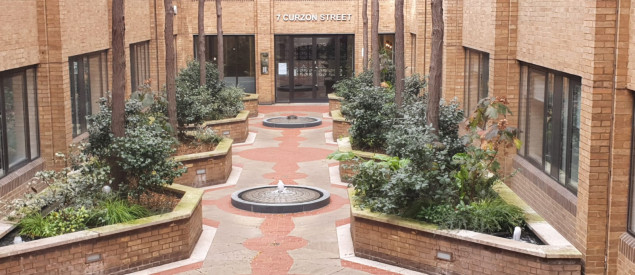
Curzon Street, London
7 Curzon Street, a prestigious residential block in Mayfair, London, required a refurbishment to the terrace roofs and high-level flat roofs.
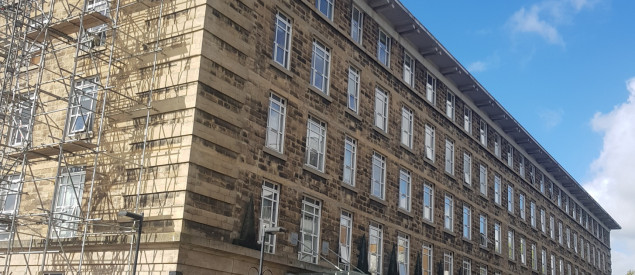
Bromyard House, London
Bromyard House, is an iconic building redeveloped into residential apartments in Acton, London.
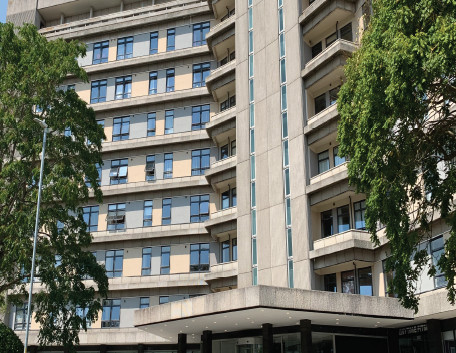
The Panorama, Ashford, Kent
The Panorama, a large mixed use residential and office block in Ashford, Kent, required extensive refurbishment to the various flat roofs.


